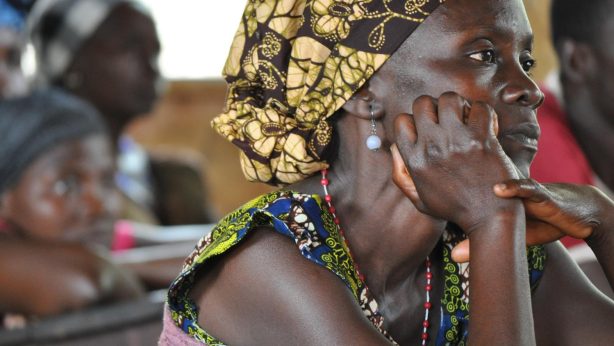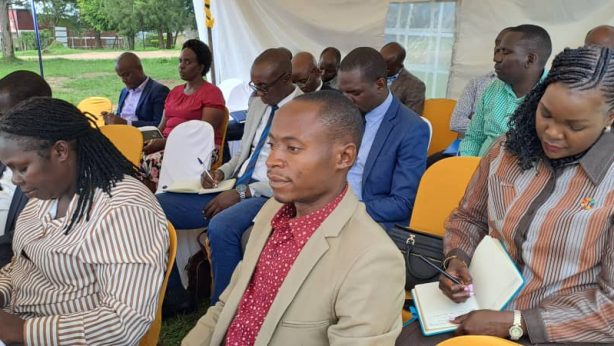Why Okoa Uchumi Must Evolve to Save Kenya from Itself
In late May, civil society organisations, budget watchdogs, economists, activists, and movement builders gathered in Machakos, Kenya, for a quiet but crucial act of civic resistance: a two-day strategy retreat convened by The Institute for Social Accountability (TISA) to reflect on and chart the future of the Okoa Uchumi campaign. The meeting was part retrospective, part reckoning, and, hopefully, part rebirth.
Born in 2016 at a time of creeping fiscal anxiety, Okoa Uchumi (Swahili for “Save the Economy”) has grown into one of Kenya’s most significant civil society initiatives aimed at ensuring transparency, justice, and accountability in public finance. Yet, almost a decade later, the crisis it warned about has deepened into a national emergency.
Debt has ballooned past Ksh. 11 trillion. The 2025/26 budget is being called a “Budget of Betrayal” by the campaign itself, as it slashes social spending while allocating more funds to surveillance and elite comforts. Youth unemployment is skyrocketing. Over 60 protesters were killed in recent maandamano demonstrations, and the president’s conditional apology did little to quell public anger or grief. In this moment of crisis, the imperative for Okoa Uchumi to evolve from a loosely coordinated network into a more structured, agile, and politically savvy force could not be clearer.
The Next Leap: This retreat, held at SEO Machakos from May 28 to 30, marked a turning point. With over 90 civil society organisations in the coalition, the key players, Twaweza and the founding members, came together not just to lament the country’s fiscal decay but to wrestle with the hard questions of coalition-building, governance, and sustainability. We revisited Okoa Uchumi’s origin story, from its IMF engagements to its early litigation work and community forums. However, we also examined its current limitations: a lack of internal structure, reliance on TISA’s convening power, and a coalition that thrives more on shared values than shared strategy.
As Dr. Rugo of Bajeti Hub reminded us, Kenya’s fiscal malaise is not just about numbers; it is also a political issue. From the early 2000s, with the Kibaki administration’s ambitious free primary education initiative, to the decentralised chaos of the County Development Fund (CDF), and now to devolution, the arc of Kenya’s fiscal policy has swung between populist promises and technocratic experiments. However, what hasn’t changed is the extraction of taxes from citizens, the government’s borrowing of loans, and the legitimacy of the Constitution.
“We Don’t Have a Revenue Problem; We Have an Expenditure Problem.”
This stark truth, often repeated by Diana Gichengo, TISA’s Executive Director, resonated deeply across the two days. The real crisis is not just that the state is broke, but that it is spending as though it is accountable to no one. Kenya’s recurrent expenditure continues to outstrip development spending, and debt repayments now account for a significant portion of the national budget. And yet, rather than tighten belts at the top, the government has squeezed from the bottom, cutting education, health, and child protection, all while expanding the security apparatus and state surveillance.
This is why Okoa Uchumi’s mission is more urgent than ever. But urgency alone does not build power.
Structure is strategy.
The group at the retreat, comprising representatives from EATGN and CRECO, as well as new voices from grassroots formations, agreed that the campaign must now adopt a hybrid model of coordination: maintaining national leadership while devolving convening power to thematic cohorts. Drawing inspiration from coalitions like CSPEN and OGP, there were calls to form working groups on debt justice, budget monitoring, digital activism, and rights-based litigation.
There were even bold questions: Should Okoa Uchumi become a formal organisation, as CRECO once did? Should members pay fees to ensure ownership and accountability? Should leadership rotate across clusters to avoid burnout and monopolisation? As Sheila puts it, “Coalitions don’t run on coordination; they run on shared interests.”
Building a Fiscal Justice Movement: What makes Okoa Uchumi unique is that it does not view public finance as a technical issue alone. It treats the budget as a moral document, a reflection of whose lives matter and whose don’t. This is why the campaign has moved from budget forums to street protests and now to direct political engagement. Its recent re-engagement with the IMF, after warning in 2023 that ignoring youth voices would spark a national crisis, shows that it is willing to operate both inside and outside the system.
Twaweza reaffirmed its commitment to this vision. We pledged to collaborate on communication and research efforts, particularly in amplifying the voices of youth and tracking empowerment programs. The renewed funding from ActionAid for the next five years is a game changer, enabling long-term planning, youth-focused research, and digital campaigns that can reach and mobilise a broader public.
But the most radical idea was the simplest: stop punishing citizens for the state’s failures. It is the government that is in debt, not the people. The economic crisis is not a natural disaster; it is a manufactured catastrophe built on impunity, elite capture, and political silence.
Toward a People-Centred Economy
The retreat offered a sobering truth and a hopeful possibility. Kenya’s economic crisis is not insurmountable, but it will not be solved by technocrats alone. It will require a people’s movement for fiscal justice, one that brings together grassroots energy, legal rigour, media savvy, and political courage. If Okoa Uchumi can move from being a campaign about the budget to a coalition that shapes the budget, sets the public agenda, and holds state power to account in real-time, then it will not just save the economy. It will help save the Republic.
As Kenya stares down a fiscal cliff, Okoa Uchumi represents both a warning and a way forward. It is a reminder that justice isn’t just about laws; it is about how money flows, who makes the decisions, and who benefits. The future of public finance in Kenya must be people-centred. The alternative is not just economic collapse; it is the collapse of democracy itself.
This post was written by Filbert Mbugua, Consultant, Advocacy and Engagement, Twaweza Kenya.


